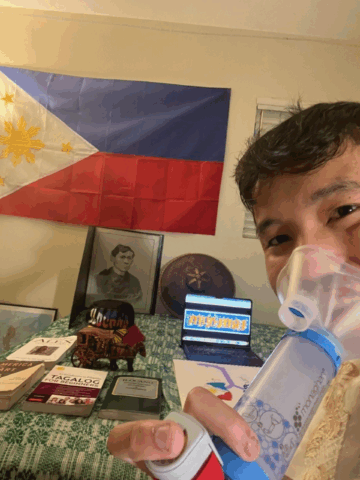“Chronic inflammation can be manifest in many ways,” says Dr. Boon. “Signs parents might see in their child include fatigue, fever, rash, joint pain or swelling, sores in their mouth, chest pains and abdominal pain. Start with your pediatrician. Make sure infection is not the cause. The primary care doctor can run some lab tests and refer you to a specialist as necessary. These symptoms are not specific, but can be early signs of chronic inflammation, including chronic forms of juvenile arthritis, lupus, inflammation of the skin and muscles, or other forms of vasculitis (inflammation that affects the blood vessels). There are also forms of inflammation that occur after a child has an infection, which may not be chronic or lifelong.”
Treatment options
To help with pain and swelling, children can take medications like ibuprofen or naprosyn, says Dr. Boon. Children with only a few joints affected but with persistent joint swelling may have a steroid injected to the joint, possibly as a one-time treatment because it’s long lasting, it may be the only treatment that is needed. Children with many joints affected, including the small joints of the hand, are often treated with systemic medications taken orally or injected just under the skin; the injections can be once a week to every two weeks, says Dr. Boon. “We also help children deal with their pain by using heat and cold packs and occupational and physical therapy.”
The effect on growth
If left untreated, chronic inflammation in children can cause fatigue, anemia and muscle aches, among other health problems. Children might feel achy and feel like they have the flu all the time. It can also affect a child’s growth rate. “If growth is stunted, the child may have to take growth hormone supplements to help them grow,” says Dr. Boon.
Fast facts
- Number of people in the U.S. with some form of arthritis or chronic joint pain: Almost 70 million
- Annual cost to the U.S. Economy for arthritis and related conditions, including juvenile arthritis: Almost $128 billion
- Prevalence of children in Orange County with pediatric arthritis: 5-10 in 10,000
Featured pediatric expert

Dr. Sheryl J. Boon
EDUCATION:
University of California, Irvine College of Medicine
BOARD CERTIFICATIONS:
Pediatric Rheumatology
Dr. Boon is the chief of the Rheumatology Division at CHOC Children’s. She completed her pediatric rheumatology fellowship and pediatric residency training at CHOC and also served as chief resident of the pediatric residency training program. In addition to her medical degree, Dr. Boon earned a master’s degree in public health nutrition from UCLA. Dr. Boon has special interests in lupus, vasculitis and pulmonary issues in patients with autoimmune disease.
Dr. Boon’s philosophy of care: “We try to deliver excellent, comprehensive care to the children who have autoimmune diseases in Orange County and the outlying areas.”






